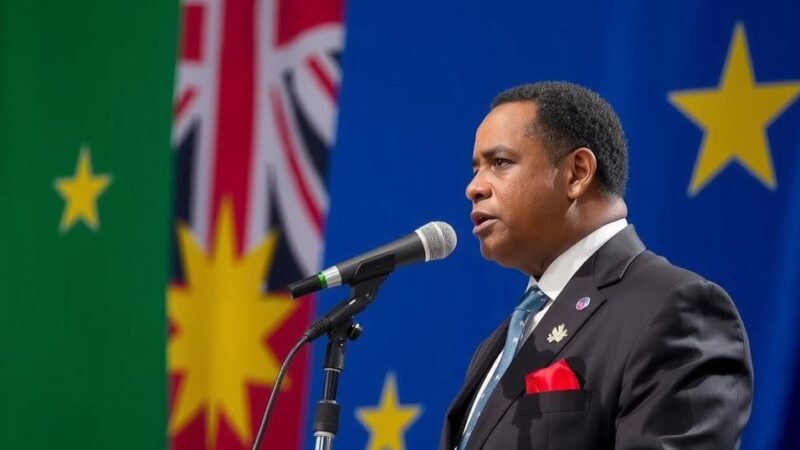The recent incident involving Nigerian politician Alex Ikwechegh, caught on video slapping a taxi driver, underscores the persistent abuse of power by public officials in Nigeria. Despite a youth empowerment movement aimed at reshaping the political landscape, Ikwechegh’s behavior exemplifies the troubling continuation of elitist entitlement. His subsequent referral to the Ethics Committee and legal actions raise critical conversations about accountability and governance in Nigeria.
The incident involving Nigerian politician Alex Ikwechegh, who was recorded slapping a taxi driver, has ignited a significant public outcry highlighting the abuse of power endemic in the country. Ikwechegh, a member of the opposition All Progressives Grand Alliance (APGA), exhibits a troubling dismissal of accountability, as he was heard declaring, “Do you know who I am?… I can make you disappear in this whole country, and nothing will happen.” This interaction stemmed from the driver’s request for Ikwechegh to collect his delivery outdoors instead of taking it inside. This occurrence is disturbingly representative of a broader pattern among political elites in Nigeria, where the phrase “Do you know who I am?” is emblematic of an entrenched culture of intimidation. Even younger politicians like Ikwechegh, who emerged under the auspices of the “Not Too Young to Run” campaign, which sought to elevate the participation of youth in politics, appear unrepentant in the face of patronizing power dynamics. The age cap reduction for various political offices had inspired hopes for transformative leadership, yet Ikwechegh’s actions reveal a disquieting adherence to antiquated norms of entitlement. Furthermore, the event recalls the conduct of a previous young senator, Elisha Abbo, who similarly resorted to violence against a civilian, thereby reinforcing skepticism about the prospect of generational change leading to improved governance. The unsettling reality remains that many younger leaders are part of a system that privileges dominance over accountability. The National Assembly has moved to address Ikwechegh’s misconduct by referring him to the Ethics and Privileges Committee while initiating legal proceedings against him for alleged threats and assault. This incident underscores a socio-political climate in Nigeria where impunity often supersedes hope for reform adequate to challenge established power structures. Ikwechegh’s outburst serves as a stark reminder that the cycle of entitlement may not be easily disrupted by mere generational transition.
In Nigeria, the socio-political landscape is often marred by incidents highlighting the abuse of power by public officials. This pattern of behavior perpetuates a culture where elite individuals intimidate and disregard the rights of ordinary citizens. The “Not Too Young to Run” movement emerged in response to the growing concerns about youth participation in politics, advocating for a new wave of leadership that could potentially break away from the entrenched patterns of oppression characteristic of older generations. Despite these efforts, recent events suggest that the systemic issues of entitlement and abuse remain unresolved, raising questions about the effectiveness of generational change in fostering responsible governance.
The actions of Alex Ikwechegh illustrate a critical reflection on the state of political accountability in Nigeria, particularly among its younger leaders. While there was a collective hope that youth involvement in politics would herald a new era of governance, the replication of oppressive behaviors by these new politicians casts doubt on such ideals. The forthcoming legal repercussions and the National Assembly’s actions may serve as necessary steps toward addressing misconduct, but they also signal an urgent need for a cultural shift that genuinely embraces accountability and disavows the legacy of privilege and intimidation.
Original Source: www.bbc.com






